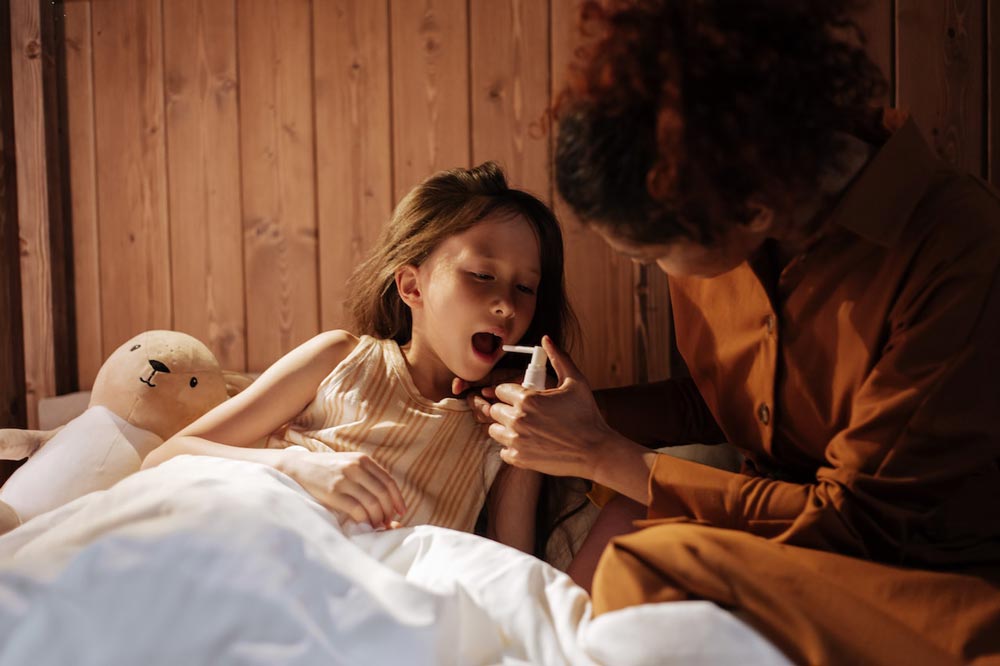
The typical cold and allergies share symptoms such as sneezing, a runny nose, a cough, exhaustion, and headaches. It’s conceivable that you have seasonal allergies if you experience abrupt onset cold symptoms around the same time every year. Although common cold and allergy symptoms may be similar, there are significant differences between the two conditions.
Seasonal allergies are immune system responses prompted by exposure to allergens like pollen or pet dander. On the other hand, the common cold is caused by a virus. However, if you’re experiencing symptoms and are unsure if it’s a typical cold or allergies, it’s best to consult a specialist at urgent care in Fairfield, CT.
Excessive sneezing and a congested or runny nose are common symptoms of allergies and colds. In addition, you might also experience fatigue and drowsiness. Nevertheless, a few other symptoms aren’t commonly shared by those experiencing both allergies and the common cold. You can tell the difference between a cold and allergies by looking for these telltale signs:
If you have allergies, the symptoms will usually flare up at specific times of the year when allergens to which you are susceptible are prevalent. For instance, if you have an allergy to tree pollen, your allergy symptoms will manifest in early spring. This also indicates that your allergy symptoms may last for several days or weeks until the season ends.
On the other hand, viruses that cause the common cold are present throughout the year, so it’s possible to acquire a cold at any moment. However, the likelihood of becoming sick is highest during the winter season. And compared to allergies, the average duration of a cold is one week.
People frequently question if allergies might result in a fever. Allergies cannot cause fever; nevertheless, you may have an allergy outbreak in connection with an infection-related fever. For example, allergies can lead to sinus problems because they often cause runny noses. Sinusitis happens when mucus gets stuck in the sinuses and lets germs or viruses grow and spread.
However, a cold can cause a fever. The temperature of someone with a cold may fluctuate, but it usually is below 100 degrees Fahrenheit. Another key difference is that a cold can be contagious, while allergies are not.

Coughing is a common symptom of colds and allergies, but the two coughs are very different. A dry, barky productive cough is the trademark of a cold, and the phlegm or mucus it produces often turns greenish or yellowish hue as it thickens.
On the other hand, allergies can induce a cough with a tickling sensation in the throat. This is because allergens frequently irritate the nose lining, causing the nasal passages to produce watery mucus, which can drip from the nose and down the back of the throat, causing a tickling feeling. This condition is known as post-nasal drip.
Allergies can cause a lot of itching. You certainly have allergies if your eyes, ears, nose, or throat are itchy. That’s because the common allergens that make you sneeze and cough can also irritate your eye lining, leading to dry, red eyes with burning and itching sensations.
Allergies rarely cause any severe pain, except for a possible headache due to sinus congestion. Your allergies can result in sore throat only if it is caused by coughing and post-nasal drip. But if you’re experiencing sore throat and body aches simultaneously, it’s an indication that you might have a cold or flu.
When you start to feel bad, some easy home cures can help. Get some rest as a first step. If you feel exhausted, respect your body’s signals and slow down; exhaustion is a symptom of allergies and colds. In addition, gargle with warm water with salt to ease the discomfort of scratchy or irritated throats and congested nasal passages.
You can also utilize a neti pot to soothe your clogged nose. You can buy a neti pot at any local drugstore. It usually comes with packs of salt mixed with warm, clean water to make a solution that you flush into your nasal passages.
To soothe your sore throat, you can use a mixture of the half to a full teaspoon of salt in 8 ounces of warm and clean water. Like you would with mouthwash, gargle for a few seconds. Then spit it out and do it again until there is no more solution. You may repeatedly do this daily until your sore throat is gone.

If you suspect you have a cold and experiencing a slight fever, headache, or muscle pain, take ibuprofen (Advil) or acetaminophen (Tylenol) as long as you’re not allergic to these medicines.
These medications can aid in lowering your fever and relieve body pain.
However, if your child has cold symptoms, ensure you talk to their physician about which medicines are safe. You should also carefully follow the instructions for how much pain reliever to give.
Antihistamines can also alleviate cold symptoms, including sneezing, a runny or congested nose, and itchy, watery eyes. Therefore, taking an antihistamine can be helpful if you are suffering any of these indications during a cold.
There are a few remedies available at your local drugstore for dealing with allergy symptoms aside from antihistamines:
If you aren’t sure if you have allergies or a cold or if the symptoms are severe, it’s best to go to an urgent care Fairfield clinic and see a doctor for a professional diagnosis and a treatment plan.
And if you don’t treat your allergy symptoms immediately, they can lead to sinus or respiratory infections. They could also make it harder for you to control your asthma if you have one.
A common cold can also get worse if not treated in the soonest possible time. So, if you’ve been sick with a cold for more than a day or two, you should visit an urgent care clinic in Fairfield for reliable treatment.


DOCS Urgent Care & Primary Care-Fairfield can help you if you have sinusitis or allergic reactions that come on quickly or last for a long time. We are the best provider of urgent care services in Fairfield, CT. We have experienced specialists, state-of-the-art facilities, and diagnostic tools that can find and treat most cold and allergy-related problems.
DOCS Urgent Care & Primary Care-Fairfield is open seven days a week. We are also open during weekends on extended hours to cater to your urgent care needs. We have reasonable self-pay rates, and you can check in online to make scheduling easy. Visit our website or call us today to make an appointment.

During this surge in COVID-19 cases, our primary focus is meeting the high demand for tests, and we are seeing higher than usual wait times. This means we are unable to answer most phone calls. Please know that our teams are working very hard during this time to care for as many patients as safely as possible. Please click the button below for answers to common questions. We appreciate your understanding.